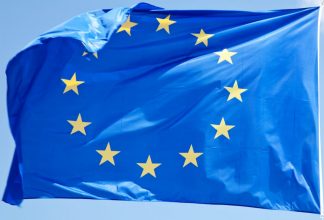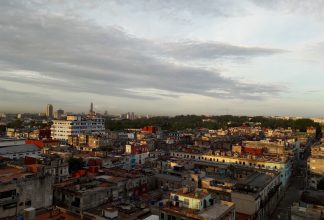Response to the Call for texts by Civil Rights Defenders Regarding the Agreement Between the European Union and Cuba
Letter #15 by Dimas Cecilio Castellanos Martí.
In July 2019, Civil Rights Defenders invited Cuban human rights defenders and civil society organisations to contribute with texts on how the European Union should work towards Cuba. This text is written by Dimas Cecilio Castellanos Martí.
Response to the Call for texts by Civil Rights Defenders Regarding the Agreement Between the European Union and Cuba
The Cuban political-economic model, based on free services in exchange for fundamental liberties, is the cause of the deterioration experienced by everything, from the economy, to the culture. The responsibility and interests entered into by the Government-State party over the course of six decades has impede progress toward democratisation. For this reason, the efforts made by the EU, by other governments, and by various personalities, have not had the desired effects:
– In 1996, the EU established the Common Position to foster a process of transition to a pluralist democracy and respect for human rights and fundamental liberties, as well as sustainable recovery and improvement in living condition for the Cuban people. Cuba responded with accusatory and aggressive speeches against the EU.
– In 2002, pressured by the crisis, the Cuban government requested to entry the Cotonou Agreement. Since that agreement, which is of a binding nature and mandates respect for human rights and fundamental liberties, the imprisonment of 75 fighters for democracy and the execution of three youths who attempted to flee Cuba in a motor boat in 2003 were sufficient to derail it.
– In 2008, given the effect of the hurricanes that lashed the country, the government agreed to reinitiate the dialogue and the cooperative relations that had been interrupted since 2003. Previously, the Minister of Foreign Affairs had said, in reference to the Human Rights Commission: “If the EU were to turn away from the sterile voting that generates conflict, Cuba would be prepared to sit down with the EU to agree upon a program… Cuba would feel morally obligated to go along with the European decision. It would sign the economic, social, and cultural agreement the next day,” meaning that the signature would not be in sync with international standards but instead would be akin to political blackmail.
– In 2010, when Spain held the chairmanship of the EU, Cuba prohibited Spanish European Parliament member Luis Yáñez from entering the counrty, the following month, political prisoner Orlando Zapata Tamayo died while on a hunger strike, which elicited a critical response from the EU.
– In 2014, the EU’s Council of Ministers of Foreign Affairs authorised the European Commission and the High Representative for Foreign Affairs and Safety Policy to initiate negotiations with Cuba to enter into a Political Dialogue and Cooperation Agreement. Cuba responded that it would consider the proffered invitation in a “manner that is respectful, constructive, and in accordance with its sovereignty and national interests,” its language for: “I am not going to change anything”, and nothing changed.
– The Agreement was signed in 2016 and its provisional application began in 2017. Nothing essential has changed between that date and now. The constitution approved in 2019 preserves the Communist Party as the only one, and as a superior leading force for society and the state. Any allowed freedoms are subordinate to being exercised to defend the totalitarian model while the Cuban people continue to be prevented from being investors in their own country or from contracting freely within the work force.
– Any agreement must therefore require that fundamental freedoms and rights, as recognised by the United Nations, be incorporated into the Cuban legislation. Absent such a requirement, cooperation for cooperation will serve only to prolong the internal crisis and increase the misery of the Cuban people.
From that perspective, I respond to the questions posed by Civil Rights Defenders:
1- What should the European Union’s objectives toward Cuba be during the implementation of the Agreement and how could these be reached?
To assist Cuba in transitioning from a totalitarian state to a rule of law, the effectiveness of which undergoes structural transformations, and with the implementation of international human rights agreements. If this is accepted, the government would demonstrate its intention of placing the interests of the nation over its own power, given that, according to the preamble of the ICCPR: “the high ideals of liberty, justice, and peace are based on the acknowledgement of the dignity and equal and inalienable rights of all human beings and, therefore, the enjoyment of the same depends on the creation of the conditions that allow them to be enjoyed.”
2- How should the European Union and the member states relate to the Cuban government’s entities, its agencies, institutions, universities, and companies, for example?
Respect for fundamental liberties, focusing on generating structural transformations, from property rights to observance and respect for human rights, should be the guiding principle of relationships with the government and with the maze of institutions that are subordinate to the same.
3- Could they achieve something by cooperating with them and what are the risks of that cooperation?
Yes, they could, but they cannot rely on promises and speeches that are capable of being violated. The agreements have to be binding. For example, when Cuba held the chairmanship of the Non-Aligned Movement and was selected to join the Human Rights Council, on December 10, 2007, for reasons of circumstantial opportunism but with no real political intent, the Cuban chancellor publicised his willingness to sign the international agreements. He did this because it was impossible not to, given the responsibility that had been incurred, but Cuba did not go beyond that statement and the agreements are still pending ratification today.
4- What could be achieved through cooperation between the European Union and the Cuban organisations that are connected to the government and are loyal to Cuba’s Communist Party? What are the risks?
These organisations were created by Fidel Castro to control society and do not enjoy the least degree of independence. Any collaboration provided through these channels will be controlled by the Communist Party and used for its own purposes, which has been the case up until now. The leaders of those organisations – the CDR, FMC, ANAP, CTC, UJC, FEU, FEEM, and UPC – are members of the Central Committee of the Communist Party and therefore respond to it constitutionally. This is also the case with other so-called “non-governmental” organisations, such as those made up of writers, journalists, jurists, teachers, etc. Therefore, the risks are high, and involve agreements and mechanisms for their control.
5- How can the institutions within the European Union cooperate with Cuban civil society? And how could they promote cooperation between Cuban civil society and European civil society?
By establishing direct relationships between both parties’ civil society associations, without any state control or travel limitations, which is the case at this time. For this reason, it is necessary that the Cuban government accepts the establishment of these relations. Despite repression and limitations, projects such as Convivencia have managed to establish links with academic associations, including the Francisco de Vitoria University in Madrid. Being able to draw on that experience and defending the right to extend it to the rest of Cuban society must be part of that cooperation.
6- What should the European Union focus on in the political dialogue, in the dialogue on cooperation, and in the trade sector with the Cuban government? How can Cuban civil society contribute to the process for the implementation of these parts of the Agreement?
Within the political dialogue, and based on Cuban society’s diversity, movements involving alternative politics, the defence of human rights, sectorial associations, and others, need to be granted freedom of association, which in turn requires the relevant legislation. On the matter of trade, so-called self-employment, which is actually a primary and limited form of private property, must be transformed into small and medium private or cooperative companies, with the right to conduct business involving services or products directly and freely, within as well as outside Cuba, without going through the monopolistic state-controlled trade model that is intended to suffocate development. Cuban civil society has much to contribute based on its initiative, its professional education, and its enterprising capacity, which would lead to an increase in production, productivity, and improvement for the people. Also, there should be the right to freely unionise and the right to freely hire members of the work force, and the Investment Law should include the Cuban people under conditions of equality. In addition, and no less importantly, assistance with civilian civic education must be provided so that the Cuban people can recover their status as citizens.
7- Should those European governments that have not yet ratified the Agreement do so or not?
They should if the Cuban government shows true political willingness and out of respect for the people it supposedly represents. This means that the political dialogue agenda must include the incorporation of Cuba in international agreements, the incorporation of the same in the current legislation, as well as the observance of the same. If things were to proceed in that direction, the EU would have a concrete means to conduct an evaluation. There can be no positive results without that commitment.
Dimas Castellanos Martí
About Dimas Cecilio Castellanos Martí
Independent journalist, with a degree in political science, and biblical and theological studies. He held several positions in the Asociación de Jóvenes Rebeldes and the Union of Young Communists of Cuba until 1963. He was a philosophy professor at Instituto Superior de Ciencias Agropecuarias, from which he was expelled in 1992. He is the author of El nuevo blog de Dimas (Dimas’s new blog) and has published more than 400 articles and received awards in different contests. He has facilitated conferences at universities in Europe and the United States. He is the author and co-editor of the book ‘Cuba’ published by ABC CLIO, and is the author of the book La revolución fracasada (The Failed Revolution). He is a member of the Academic Council of the Convivencia Studies Centre.

